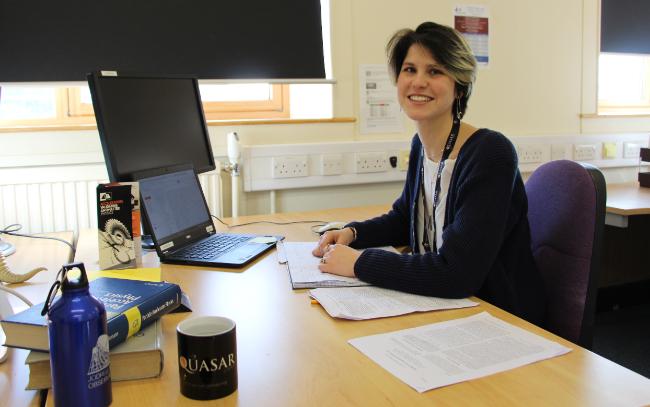Bianca Veglia: “For me, physics is contemplating nature; that’s often one of the most beautiful things that you can do in this world.”

“My love of physics started when I was about 12 years old and reading a science book about nuclear power. I said, “Oh my god, how is it possible that something small like an atom can create all that energy?” I had heard about nuclear energy, but I didn’t really know how it worked. I'd always been very curious about things and felt that physics was the science that was going deep into things, more than any other. For me, physics is contemplating nature; that’s often one of the most beautiful things that you can do in this world. I really appreciate going into every detail to observe the same problem from all the possible different points of view, to figure it out in all its aspects.”
Bianca Veglia is a Marie Curie Fellow in the QUASAR group of the University of Liverpool and is based at the Cockcroft Institute, UK. Her project ‘Beam Stability and Life Time in Low Energy Storage Rings’ within the AVA network, is looking at creating a source of cooled beams of antiprotons at lower energies than is currently achievable anywhere in the world. The antiprotons will be used for antimatter experiments by the new facility ELENA located at CERN.
“I am involved in the project about the low energy antiproton ring (ELENA). Currently we're doing an optimisation study, trying to understand exactly what happens. The ELENA ring was designed to avoid the use of thin foils to get low energy antiprotons, as thin foils lead to a lot of particles being lost. This is thrilling because it means ELENA will increase the availability of very low energy antiprotons for many different experiments. The AVA project is all about improving efficiency. The results won't be immediate as ELENA is not finished yet, but hopefully there will be some interesting results about antimatter in the next few years.”
“Research is a creative act: everyone can give their precious contribution”
“At the beginning of the first year of university the male/female ratio was 4:3 but by the end of the master’s degree in Theoretical Physics the number of girls dropped drastically. I haven’t personally witnessed nor felt myself any discrimination, but I think there is still a shadow of prejudice about women in science. Finally, the doors are open for everyone, the research is a creative act and we can all give our personal contribution. A female perspective is very precious in any field.”